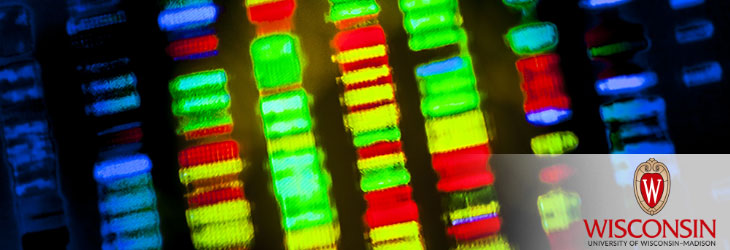Diagnostics & Biomarkers

T CELL SPECIFIC BIOMARKERS FOR PREDICTING GRAFT-VS-HOST DISEASE AND HEMATOPOIETIC MALIGNANCY RELAPSE FOLLOWING HEMATOPOIETIC STEM CELL TRANSPLANTATION AND TREATMENT THEREOF
WARF: P220161US02
Inventors: Christian Capitini, Nicholas Hess, Kalyan Nadiminti, Peiman Hematti, Jenny Gumperz
The Invention
UW-Madison researchers have identified and validated a set of human T cell specific biomarkers that can predicti graft-vs-host disease (GVHD) and/or relapse following allogeneic hematopoietic stem cell transplantation (allo-HSCT).
After IRB approval, patients who received HSCT for all hematologic malignancies at the University of Wisconsin were prospectively enrolled from 2020-2021. Blood samples were collected from 35 patients for 15 weeks following allogeneic HSCT. Higher numbers of CD3+CD45RO+ donor T cells in the first twenty days after HSCT was predictive of grade 3-4 aGVHD, whereas lower numbers were predictive of relapse. Surprisingly, the inventors also identified a CD4+CD8+ double positive T (DPT) cell population that increases in frequency 2-3 weeks prior to the development of grade 2-4 aGVHD, which suggests they may also be used as a predictive biomarker.
After IRB approval, patients who received HSCT for all hematologic malignancies at the University of Wisconsin were prospectively enrolled from 2020-2021. Blood samples were collected from 35 patients for 15 weeks following allogeneic HSCT. Higher numbers of CD3+CD45RO+ donor T cells in the first twenty days after HSCT was predictive of grade 3-4 aGVHD, whereas lower numbers were predictive of relapse. Surprisingly, the inventors also identified a CD4+CD8+ double positive T (DPT) cell population that increases in frequency 2-3 weeks prior to the development of grade 2-4 aGVHD, which suggests they may also be used as a predictive biomarker.
Additional Information
For More Information About the Inventors
Tech Fields
For current licensing status, please contact Andy DeTienne at [javascript protected email address] or 608-960-9857